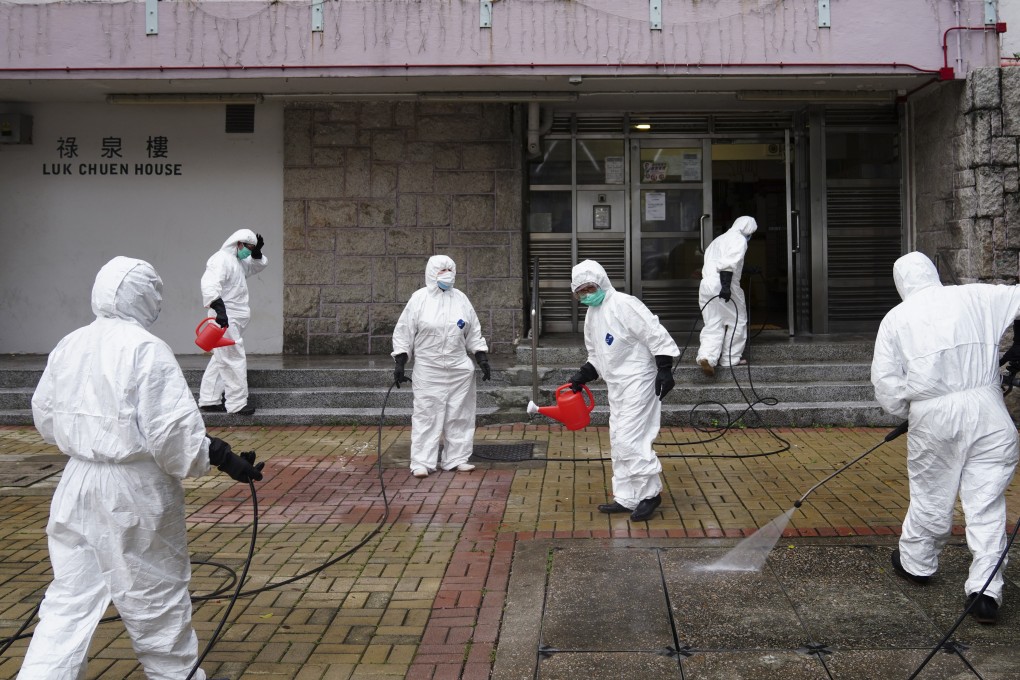Coronavirus: Hong Kong extends social-distancing curbs including gathering ban, compulsory quarantine as four new cluster cases raise ‘super spreader’ fears
- Government announces two-week extension of ban against more than eight gathering in public, with quarantine measures continuing over longer term
- Move comes as six people, including four from same Sha Tin housing estate, are confirmed as infected

“I am very worried about this outbreak in the community,” Chief Executive Carrie Lam Cheng Yuet-ngor said as six more coronavirus infections were confirmed on Tuesday, four of them locally transmitted, taking the city’s total to 1,093.
With the current restrictions due to expire on Thursday, Secretary for Food and Health Professor Sophia Chan Siu-chee said the limit on group size, as well as Covid-19 regulations governing the operation of restaurants and bars, would remain in force until June 18.
“It is expected that there may be sporadic infection cases or even small outbreaks in the community,” Chan said.
The legal framework for compulsory quarantine will also be extended until July 7 for travellers from mainland China, Macau and Taiwan, and September 18 for arrivals from overseas. The indefinite ban on non-residents flying into Hong Kong from abroad continues as well.
But the health minister also said a mechanism would be introduced to allow for the gradual relaxation of compulsory quarantine requirements for arrivals from specific countries and places after assessing the relevant public health risks, so as to restore the flow of people and promote economic activity.